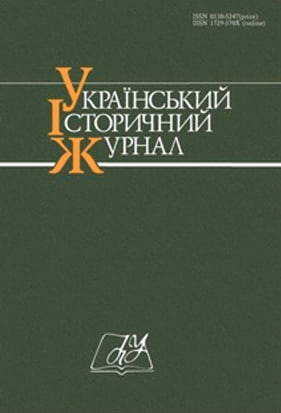World War II in the Context of the Russo-Ukrainian War: Main Narratives and Research Perspectives
DOI:
https://doi.org/10.15407/uhj2024.04.005Keywords:
Russo-Ukrainian War, World War II, Nazi concentration camps, Stalinist repressions, Soviet POWs, colonialism, postcolonialism, subjectivity of Ukraine and UkrainiansAbstract
The purpose is to describe the reasons for using analogies and narratives of World War II in contemporary Ukrainian society and to identify the main topics of discussion and new trends in scholarly interpretations of WWII.
The research methodology is based on the theoretical contributions of hermeneutics, approaches of historical comparativistics, and postcolonial theory.
The scientific novelty of the material is to identify changes in the interpretation of the events of World War II under the influence of the current war of the Russian Federation against Ukraine in the work of contemporary specialists in the field of socio-humanities and to identify promising vectors of scientific research in this thematic niche.
Conclusions. In scientific and public debates, there are three areas of change in the historiography of World War II that seem to be the most promising. The first area is related to the problem of Ukraine’s subjectivity both in historical retrospect and in the context of the current war. Such work, among other things, involves conducting research that would show “Ukrainians” among the millions of Soviet war participants of WWII who have traditionally been seen as “Russians” in Western historiography. This includes calculating the number of Ukrainians among Red Army soldiers, prisoners of war, forced laborers deported to the Reich, including the so-called Ostarbeiters, and Soviet prisoners of Nazi concentration camps. The second area is the study of the events of the last world war using the methodological approaches of colonial and postcolonial studies. The study of Russian imperialism in the conceptual paradigm of settlement colonialism opens up opportunities for an adequate analysis of the “Ukrainian question” in Moscow’s policy in the context of the history of other colonized peoples and territories of the Soviet Union and creates new perspectives for interpreting the events of WWII in Ukraine. The third area involves expanding the chronological framework of the study and including the events of World War II in the broad historical period of Stalinist repression or combining them with World War I in a long “Thirty-Year War of the Twentieth Century”. The proposed approaches will serve the purpose of further deconstruction of the “Great Patriotic War” myth, which remains an important element of Russian propaganda.


